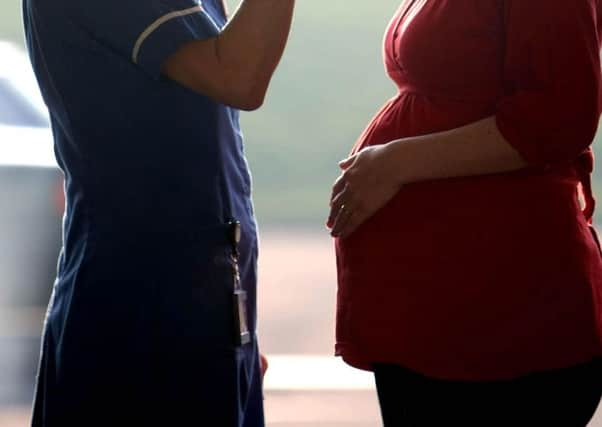Inadequate staffing leading to maternity unit closures


The research, from the Institute for Fiscal Studies (IFS), found that NHS maternity units across England are more likely to temporarily close to admissions towards the end of the week and during holiday periods.
While closures occur during very busy days, they also vary by the day of the week and the month, bearing little resemblance to spikes in admissions.
Advertisement
Hide AdAdvertisement
Hide AdFor example, closures are 30 per cent more likely on Thursdays, Fridays and Saturdays than they are on Mondays to Wednesdays, despite the fact that admissions are evenly spread across week days and actually are lower at weekends.
Researchers also found there are 50 per cent more closures in June than in January, even though the number of births is roughly the same.
Study co-author Elaine Kelly, a senior research economist at IFS, said: “NHS maternity units are more likely to close towards the end of the week and during holiday periods, pointing to staff availability as a key problem.
“Such closures may be the most cost-efficient way of dealing with pressures but NHS hospital trusts should certainly ensure that such day-of-the-week or seasonal effects are an understood and tolerable consequence of financial restraint, rather than the result of poor workforce management.”
Advertisement
Hide AdAdvertisement
Hide AdThe report said the pressure on maternity services has not been created by a rising birthrate - which has barely changed over the past eight years.
But it found greater levels of care were required due to factors such as women having children when they are older, which is linked to more complications, and greater maternal obesity.
Births by women aged 40 or over have increased by 25 per cent over the past decade, it said.
It also said complex pregnancies are also behind a rise in caesarean sections - which jumped by 23,000 from 2006 to 2014.
Advertisement
Hide AdAdvertisement
Hide AdMs Kelly said: “NHS maternity units are under increasing pressure from the fact that those giving birth increasingly have characteristics associated with, on average, more expensive care needs.”
Jon Skewes, director for policy, employment relations and communications at the Royal College of Midwives, said: “Heads of midwifery tell us that pressures on services are leading to closures and also to the temporary removal of services such as home births.
“The solution, in essence, is fundamentally simple, and that is to fund and staff our maternity services so that they have the resources to meet the demands being placed on them.”
An NHS England spokesman said: “There is always a planned alternative when any individual ward stops taking extra women, something described as ‘closure’ and, as the report makes clear, maternity units that follow this procedure have lower death rates.”
Advertisement
Hide AdAdvertisement
Hide AdThe report comes after data from the Labour Party last month showed that 40 per cent of maternity wards in England closed their doors to expectant mothers at least once last year.
The most common reasons given were too few staff and not enough beds.
Among those that responded to a Freedom of Information request were Bradford Teaching Hospitals, which shut 10 times and Mid Yorkshire Hospitals, which said the need to “maintain safety and staffing levels” forced it to close five times.
The Government said closures are “well-rehearsed” and it was “misleading” to say they were down to staff shortages.